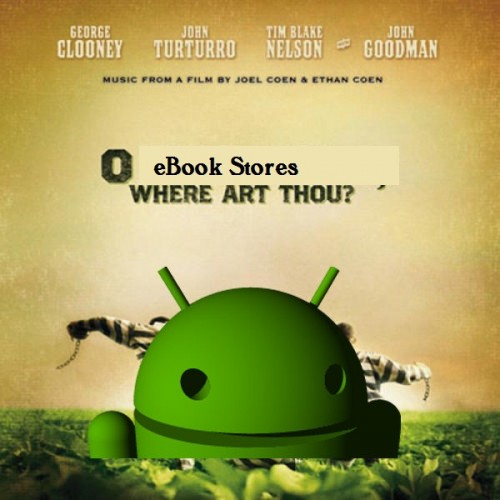CES proved there’s an onslaught of Android tablets headed our way this year, from the Entourage Edge to the Dell Mini 5 to the Notion Ink Adam. And of course, Judie and Dan have been familiarizing themselves with the Camangi Web Tablet. But something’s missing from this Android tablet equation: Where are the big eBook stores on Android?
Sure, eReader is available, but there are a few drawbacks. One, eReader uses the PDB format, which at this point is almost a dead end. With their parent company Barnes and Noble throwing support to the ePUB format, there’s not a lot of benefit to building a library in PDB. eReader also has the micropay rebate system; personally, I don’t trust any form of “savings” that only gets translated into store credits, AND that doesn’t apply to the most popular items. Having said that, if you are like Judie and Dan with their large eReader/Fictionwise libraries, having the eReader app available is a plus. But they’re far from the biggest store out there or the best option for every consumer.
Since eReader is available, you’d think that Barnes and Noble would be on top of this with a branded app for their store. The nook runs on Android, so it’s not like they don’t know how to port it! Plus Barnes and Noble already offers apps for the iPhone, PC, Mac, and Blackberries; why not an Android version? I’d buy the argument that Android is a threat to the nook IF the nook were more like the Alex reader, with its full web browser, etc. The nook has nothing that even indicates Android out of the box, so it isn’t like the average buyer of a nook is going to change their mind and snap up a Camangi instead!
And then there’s the elephant in the room: Amazon Kindle. They have the Kindle readily available for the iPhone and iPod touch, as well as PCs (with Macs and Blackberries coming soon.) It’s possible they are concerned about cannibalizing Kindle sales, but if that were really a concern they wouldn’t have released an iPhone app. Pushing Kindle books onto Android phones just increases the library-share that Amazon has, and that leads to more Kindle owners. The only other reason I can think of for their avoiding Android is that the next Kindle will be similar to various Android web tablets. With Engadget’s rumor/speculation that the next Kindle will be sporting a Qualcomm Mirasol display, there’s a good chance the web browsing will be beefed up, and it could even be sporting video capabilities. Even so, if Android hits even a portion of the sales projections analysts have predicted, it’s a big target for the supposed ebook “market leader” to ignore.
Worst of all, as far as I can tell, no DRM-capable ePUB reader available for Android. This is a huge frustration, since almost every ebook store except Amazon uses the ePUB standard, as do many library programs. This is a great opportunity for stores that do not have a major reader affiliation, or who want to have consumers build a library with their branded store. To be fair, there are a few ePUB readers, like FBReader and Aldiko, that read non-DRM ePUB quite nicely. But that still excludes a wide body of bestsellers and mid-list books that are not available on the open market without some sort of digital rights management. Shortcovers may or may not have DRM, but as far as I can tell I can’t load my own books into Shortcovers, so any support is moot. Plus, as I ranted before, the Shortcovers app seems half-baked, and depending it to improve does not seem likely.
Lack of ebook readers is not a dealbreaker for Android, but it would be nice. I keep eying all the new Android tablets coming out, and if I were to sink my hard earned cash into a full tablet I want a full ebook experience. Are you frustrated with the lack of solid ebook software for Android? You can contact Amazon here, and Barnes and Noble here!

